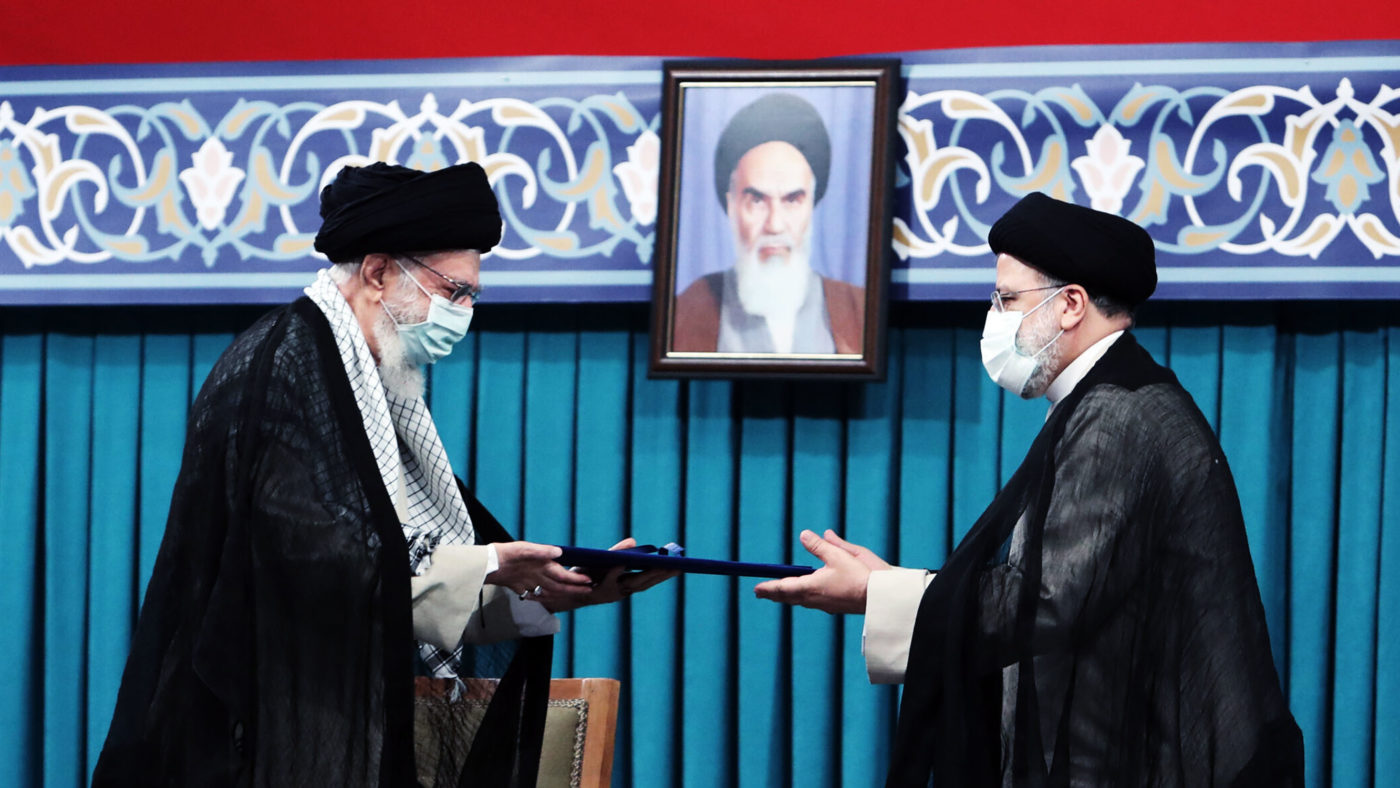How best to deal with Iran’s regime has been a serious conundrum for Western governments for four decades. This vexing problem will become much worse now that Ebrahim Raisi takes over as the country’s president.
Like many of my colleagues in the UK Parliament, I have long recognised that in the Islamic Republic of Iran, the overwhelming majority of the people oppose the theocratic regime and would prefer to live in a secular democracy such as ours. The existing order is not a necessary fact of life in Iran, but could be replaced through popular activism. Once one recognises this fact, one must also recognise that the foreign policy of the United Kingdom ought to be directed to supporting that outcome, morally and politically.
There is no risk to the UK in supporting the Iranian people in their struggle against the theocracy that governs them and in their aspiration for a better future. But there is tremendous risk to that people if the international community refuses to offer such support. That risk is significantly magnified following the June 18 election, which established Ebrahim Raisi as the next president.
Raisi will take office on August 5 after serving as head of the judiciary for two years. His previous conduct, particularly his role at the time of the massacre of some 30,000 political prisoners in 1988, has led to international calls for him to be investigated.
Western powers, not least the UK, should be heeding those calls and pressing for a formal United Nations inquiry into Raisi’s role in what has been called the “worst crime of the Islamic Republic”, a process backed by the UN Special Rapporteur on Iran and Amnesty International. The Iranian activist community is in no doubt that there is a wealth of information widely available which would be relevant to that inquiry.
After Raisi began to emerge as the only viable candidate for last month’s election, protesters inside the Islamic Republic condemned him as the “henchman of 1988”. Their widespread demonstrations called attention to Raisi’s role in the massacre of political prisoners in that year, which was primarily aimed at destroying the country’s leading pro-democracy Resistance group, the People’s Mojahedin Organisation of Iran (PMOI or MEK).
In July 1988, “death commissions” were formed throughout the Islamic Republic, with a mandate to interrogate political prisoners and determine which of them still harboured sympathy for the PMOI or other pro-democracy activist groups. Those who failed to declare loyalty to the theocratic regime were summarily executed before being loaded onto refrigerator trucks for secret interment in mass graves. It is estimated that by the end of September, around 30,000 individuals were killed in this fashion. The largest portion of these killings took place in Tehran, the area of jurisdiction for the “death commission” on which Raisi served.
Raisi had spent the previous three decades as an unwavering servant of the regime, during which time many other participants in the 1988 massacre were rewarded with prestigious appointments and government contracts. His commitment to the brutal suppression of dissent made him a prime candidate to oversee the regime’s response to some of the greater challenges to its hold on power that have arisen since the time of the massacre.
In January 2018, the Islamic Republic found itself faced by nationwide uprising and explicit calls for regime change. Supreme Leader Ali Khamenei blamed the unrest on the PMOI leadership, a conclusion that was supported by the activist community’s enthusiastic response to calls by the opposition’s leader-in-exile, Maryam Rajavi, for a “year full of uprisings”.
That period of wide-ranging unrest culminated in an even greater uprising in November 2019, by which time Raisi had been made the country’s top judge. During his tenure in that office, Iran witnessed the systematic torture of thousands of detainees with alleged connections to the uprising. That torture, which continued for months, followed the fatal shooting of 1,500 peaceful protesters.
The crackdown was a chilling preview of what the world can expect of a Raisi administration. It was also a clear reminder of the extent to which the regime feels threatened by the recent upsurge in popular unrest and pro-democracy sentiment.
There is ample reason to believe that the domestic challenges to the regime will persist and even increase under Raisi. Those challenges were highlighted to a large international audience in mid-July at the Free Iran World Summit, an event I attended together with a cross-party group of parliamentary colleagues.
The message from the summit was clear: hold the Iranian regime, in particular Raisi, accountable for their actions. This is one area in which principle and realpolitik coincide. It is also an area in which the UK can show leadership to the international community. And the sooner it does, the better.
Click here to subscribe to our daily briefing – the best pieces from CapX and across the web.
CapX depends on the generosity of its readers. If you value what we do, please consider making a donation.


